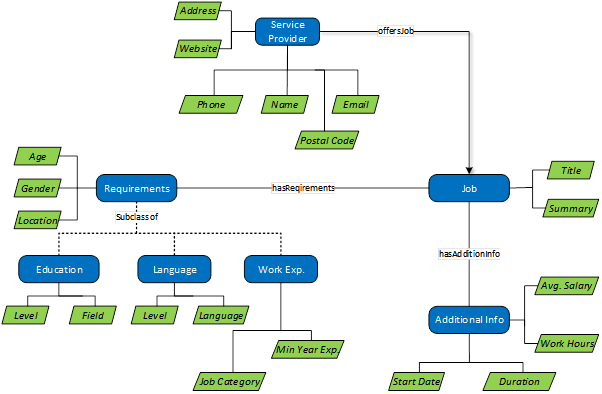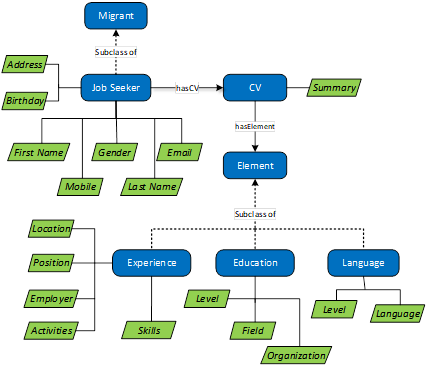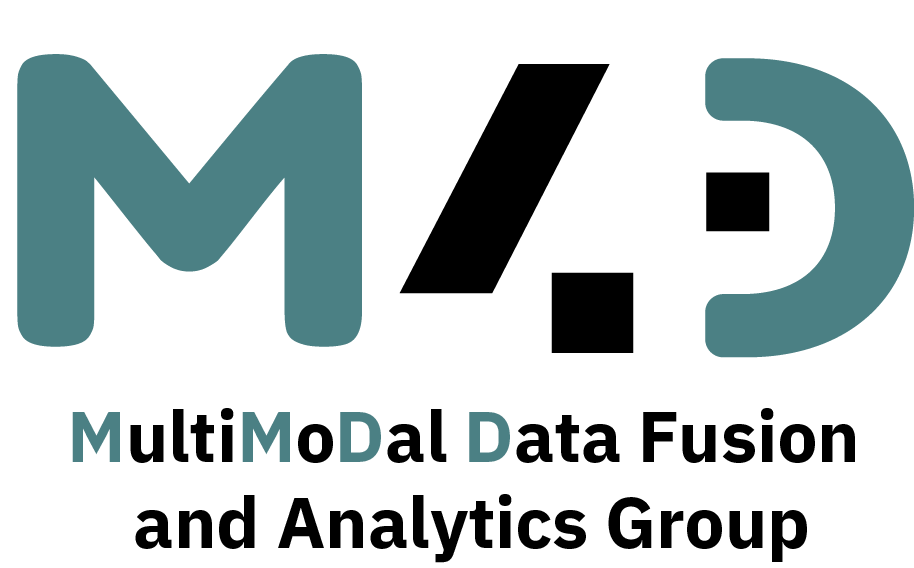MIICT Ontology: Modelling migrant integration services and profiles
The MIICT ontology is a lightweight matchmaking ontology that aims for matching available services with migrant profiles and describes the following aspects:
- User profiles, including their education, languages, experience, location etc.
- Information related to the services offered through the platform, such as jobs, training courses, house posts etc.
- The user’s activity in the platform, i.e., his/her favorite posts and applications
- Analysis results, i.e., recommendations that become available to the users
Representing job posts
The representation of a job post that is offered by a service provider along with the job requirements and its additional information is illustrated in the following figure.

Representing user profiles
The following figure illustrates the core elements of the migrant profiles including their personal information such as their address as well as information related to their education, the languages, and the work experience.

For developing and deploying the ontology we rely on the following tools:
- Protégé-OWL v5.0, the popular ontology development environment
- GraphDB for locally hosting test versions of the ontology and for formalizing the SPARQL queries
- SPARQL served as the semantic query language for submitting queries to the ontology and running rules on top of the model
- RDF4J, and open-source modular Java framework for working with RDF data
License
Apache License 2.0
Publications
- D. Ntioudis, E Kamateri, G. Meditskos, A. Karakostas, F. Huber, R. Bratska, S. Vrochidis, B. Akhgar, I. Kompatsiaris, “IMMERSE: A Personalized System Addressing the Challenges of Migrant Integration”, IEEE International Conference on Multimedia and Expo (ICME 2020), Workshop on ICT and Multimedia Tools for Migrants Inclusion in Host societies (WIMMIH 2020), 10 July 2020.
Related Projects
- MIICT
Ontologies (links)
https://gitlab.com/miict-kbs/semantic-models
Contact
- Dimos Ntioudis: ntdimos@iti.gr
- Tasos Karakostas: akarakos@iti.gr
